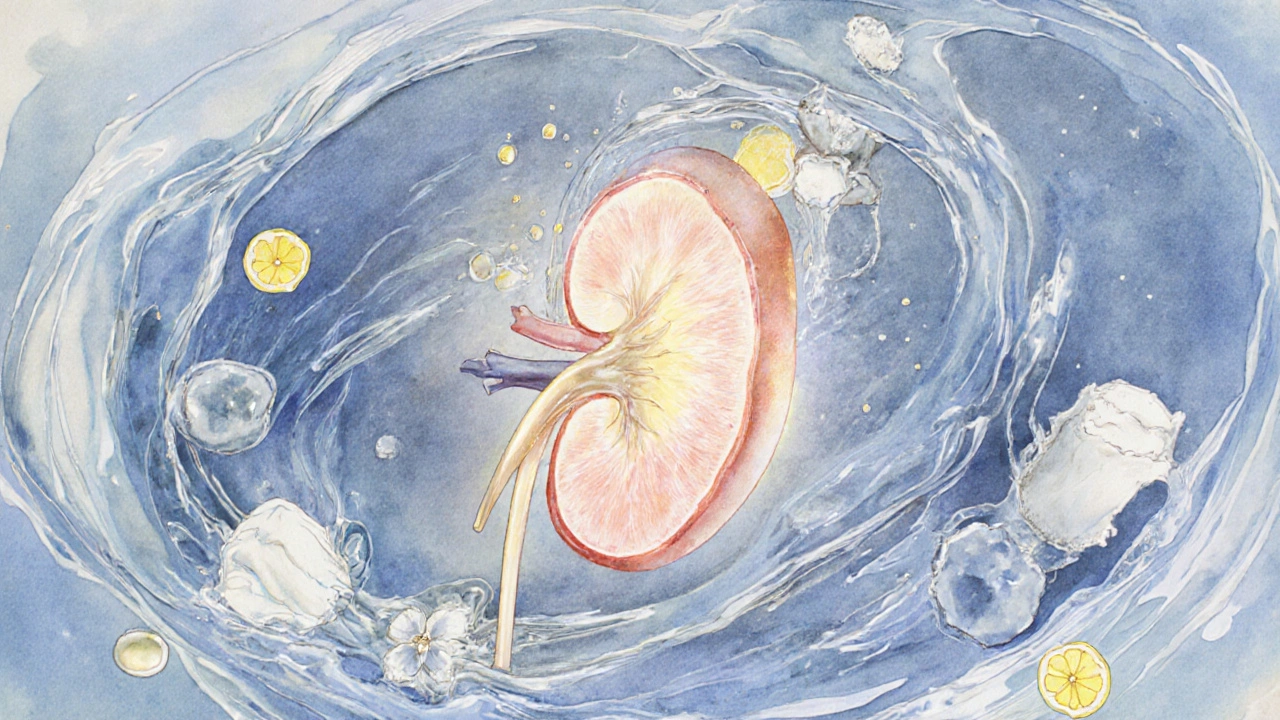
If you’ve had one kidney stone, you’re not alone - and you’re not done dealing with it. About 30% to 50% of people who pass a kidney stone will have another within just three to five years. That’s not bad luck. It’s a chronic condition. And like high blood pressure or diabetes, it needs daily management, not just a one-time fix.
Why Kidney Stones Keep Coming Back
Kidney stones aren’t random. They form when your urine has too much of certain minerals - calcium, oxalate, uric acid - and not enough fluid to wash them out. Most stones (about 80%) are made of calcium oxalate. But the problem isn’t just what you eat. It’s how your body handles what you eat and drink.Doctors used to think cutting out calcium would help. It doesn’t. In fact, avoiding calcium makes stones more likely. Why? Because calcium binds to oxalate in your gut. If you don’t have enough calcium at meals, oxalate gets absorbed into your blood and ends up in your urine - where it forms stones.
That’s why modern guidelines say: Don’t cut out calcium. Eat it. Just get it from food, not supplements. And pair it with oxalate-rich foods at mealtime.
The One Thing That Matters Most: Fluids
If you remember only one thing from this article, make it this: Drink more water.Every major guideline - from the European Association of Urology, the National Kidney Foundation, to the American Academy of Family Physicians - agrees: the #1 way to prevent kidney stones is to make more urine. You need at least 2.5 to 3 liters of fluid per day. That’s about 10 to 12 cups. And yes, that includes tea, coffee, and even soda - but water is still best.
Why so much? Because your body loses fluid through sweat, breathing, and even your skin. If you’re active, live in a warm climate, or sweat a lot, you’ll need even more. Thirst is not a reliable guide. By the time you’re thirsty, you’re already behind.
Here’s how to make it practical:
- Start your day with a glass of water before coffee.
- Keep a marked water bottle with you - aim to finish one by midday, another by dinner.
- Check your urine color. Pale yellow or clear? Good. Dark yellow or amber? Drink more.
- Drink a glass of water before bed, and another if you wake up at night.
Studies show people who consistently hit this fluid target cut their recurrence risk by up to half. That’s the biggest win you can get.
What to Eat - and What to Avoid
Diet matters, but not in the way most people think.Sodium is the hidden enemy. Most people don’t realize how much salt is in processed food - bread, canned soup, deli meats, sauces, even breakfast cereals. The American Academy of Family Physicians recommends limiting sodium to 2 grams per day (that’s about 5 grams of salt). Too much sodium makes your kidneys dump more calcium into your urine, which feeds stone formation.
Here’s how to cut back:
- Don’t add salt at the table.
- Read labels. Choose foods with less than 140 mg sodium per serving.
- Cook at home more. Restaurant meals are sodium bombs.
Animal protein is next. Red meat, chicken, fish, and eggs break down into uric acid and reduce citrate - a natural stone blocker. Limit yourself to 8 ounces per day (about the size of a deck of cards). Swap some meat for plant proteins like beans, lentils, tofu, or nuts. They’re not just safer - they’re linked to fewer stones.
Oxalate isn’t the villain. Spinach, beets, nuts, chocolate, and sweet potatoes are high in oxalate. But you don’t need to eliminate them. The key is to eat them with calcium-rich foods during the same meal. For example: have spinach salad with feta cheese, or almonds with yogurt. That way, oxalate binds to calcium in your gut and leaves your body before it reaches your kidneys.
And yes - you can still enjoy these foods. You just need to pair them right.
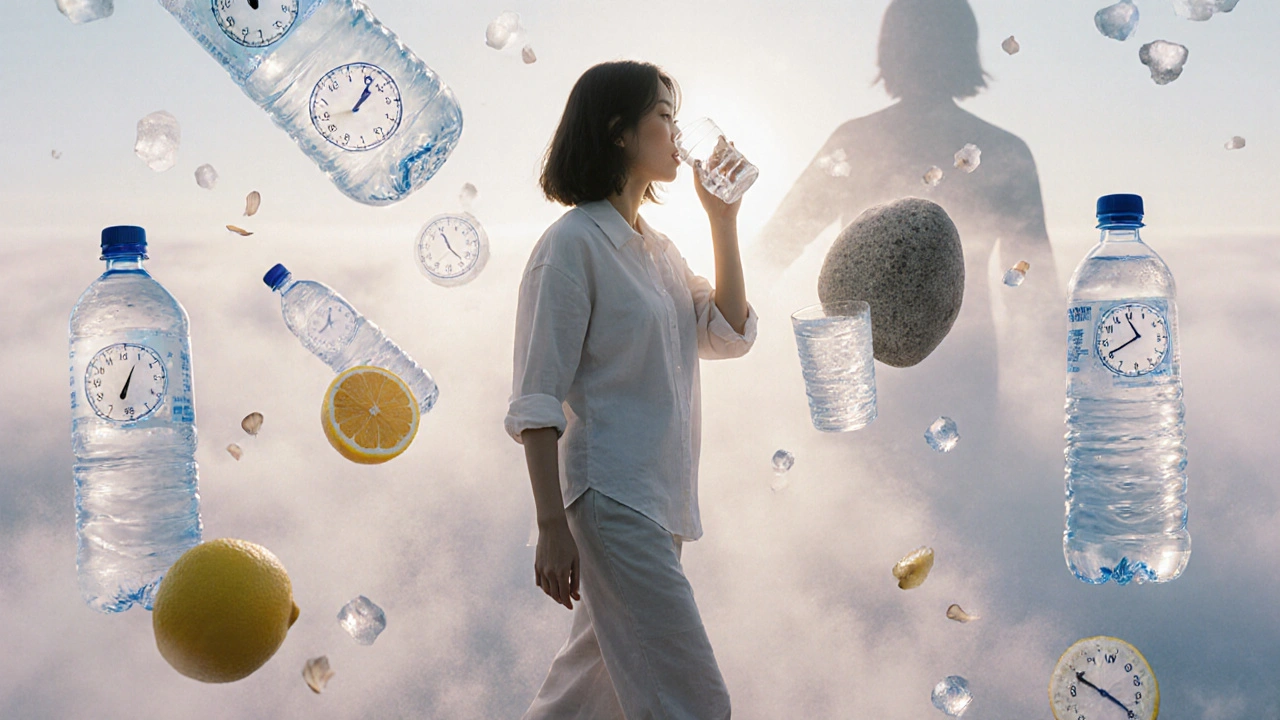
Citrate: The Secret Weapon
Citrate is a natural substance in your urine that stops crystals from forming. Low citrate = higher stone risk. The goal is to keep citrate levels above 320 mg per day.How do you boost it? Lemon juice. Fresh lemon juice, not bottled. Two tablespoons of lemon juice in water daily can increase citrate. The NHS recommends adding it to your water. Orange juice works too - but watch the sugar. Stick to unsweetened versions.
There’s a catch: citrate supplements (like potassium citrate) are sometimes prescribed, but they’re not magic. Evidence is mixed, and they can cause side effects. For most people, lemon juice in water is the safest, cheapest, and most effective way to get it.
What Not to Drink
Not all fluids are equal.Skip sugary sodas. Studies show people who drink one or more sugary sodas a day have a 23% higher risk of kidney stones. The fructose in soda increases calcium and oxalate in urine while lowering citrate. Diet sodas aren’t much better - they’re linked to higher stone risk too.
Limit alcohol. Alcohol dehydrates you and can spike uric acid. Beer is especially risky.
Watch out for “energy” and “sports” drinks. Many are loaded with sugar and sodium. Water is always better.
The NHS specifically warns against fizzy drinks - and they’re right. If you crave carbonation, try sparkling water with lemon.
Long-Term Thinking: This Isn’t a Diet. It’s a Lifestyle.
Kidney stone disease isn’t something you cure. It’s something you manage - for life.Recurrence rates are brutal: 14% in the first year, 35% by five years, and over 50% by ten years if you do nothing. But if you follow the basics - drink enough water, cut salt, eat calcium with oxalate, limit meat - you can slash that risk by 40% to 50%.
That’s not a guess. That’s from clinical studies on the DASH diet (Dietary Approaches to Stop Hypertension), which is now recommended by the National Kidney Foundation for kidney stone prevention. It’s rich in fruits, vegetables, whole grains, and low-fat dairy - and low in salt and meat. It’s not a fad. It’s medicine.
And here’s the hard truth: if you stop after a few months, the stones will come back. This isn’t a 30-day cleanse. It’s a permanent shift.
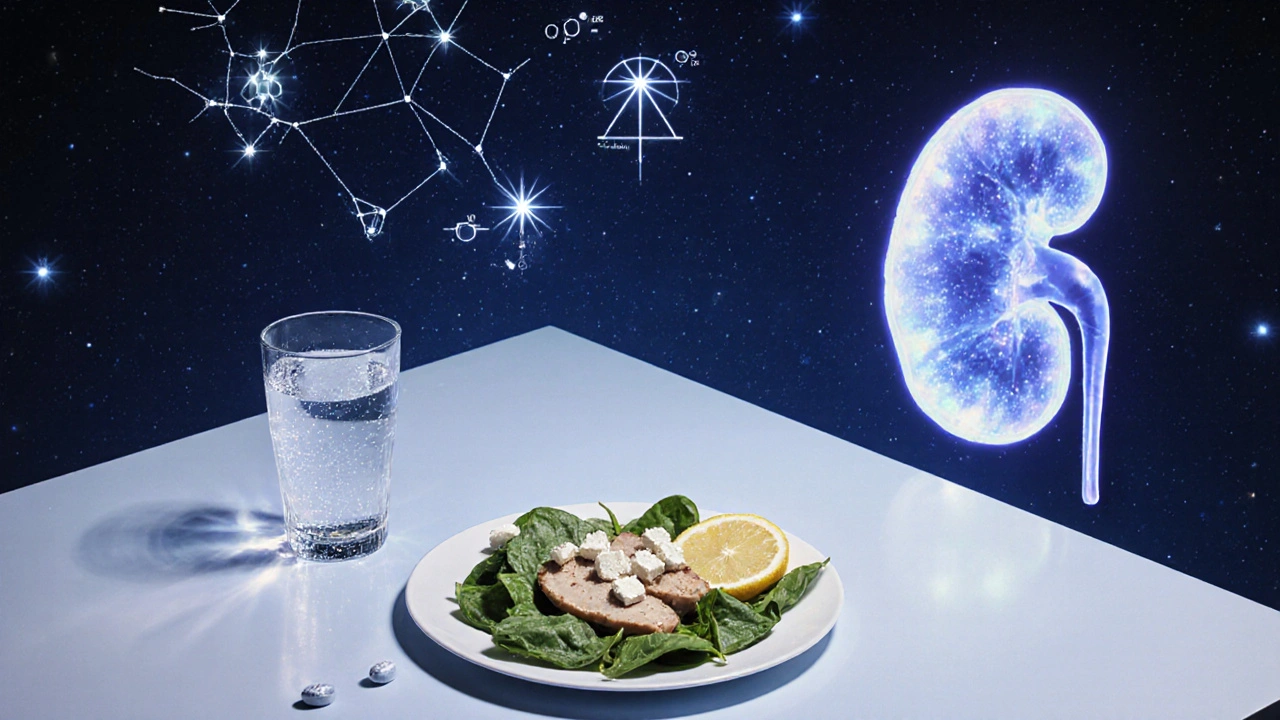
When to See a Specialist
If you’ve had more than one stone, or if you’re still forming stones despite following these rules, see a nephrologist or urologist. They can order a 24-hour urine test. This test tells you exactly what’s in your urine - calcium, oxalate, citrate, pH - and why you’re forming stones.Based on the results, you might need medication. But even then, diet and fluids come first. Medication is an add-on, not a replacement.
Also, if you’re losing kidney function or have other chronic conditions like diabetes or high blood pressure, managing stones becomes even more critical. Recurrent stones increase your risk of chronic kidney disease - up to 19% of recurrent stone formers develop it, according to a 2022 study in the Journal of Urology.
Real-Life Example: How Sarah Stopped Her Stones
Sarah, 48, from Auckland, passed her first stone in 2022. She thought it was a one-time thing. Two years later, she had another. This time, she did something different.She started carrying a 1.5-liter bottle everywhere. She drank one by lunch, another by dinner. She stopped adding salt to meals. She swapped her afternoon soda for sparkling water with lemon. She ate yogurt with her spinach salad. She cut her chicken portions in half and added lentils instead.
Eight months later, she had her first 24-hour urine test. Her citrate went up. Her calcium and oxalate dropped. Her doctor said she was on track. She hasn’t had another stone since.
She didn’t take pills. She didn’t go on a miracle diet. She just changed how she drank and ate - every day.
Final Takeaway: You Can Control This
Kidney stones feel like bad luck. But they’re not. They’re a sign your body’s chemistry is out of balance - and you can fix it.You don’t need expensive supplements or extreme diets. You need consistency:
- Drink 2.5-3 liters of fluid daily - mostly water.
- Keep sodium under 2 grams per day.
- Eat calcium from food - not pills - with meals that contain oxalate.
- Limit meat to 8 ounces a day.
- Add fresh lemon juice to your water.
- Avoid sugary and fizzy drinks.
This isn’t about perfection. It’s about progress. Miss a day? Get back on track. Eat too much salt? Drink extra water the next day. This is a marathon, not a sprint.
And remember: you’re not just preventing stones. You’re protecting your kidneys - for life.
Can I still eat spinach if I have kidney stones?
Yes - but not on its own. Spinach is high in oxalate, which can contribute to stones. But if you eat it with calcium-rich foods like yogurt, cheese, or milk, the calcium binds to the oxalate in your gut and prevents it from reaching your kidneys. So have spinach with feta, or blend it into a smoothie with almond milk. Avoid eating large amounts of spinach alone, especially in salads without dairy or calcium sources.
Do I need to avoid all calcium?
No - and avoiding calcium can actually make stones worse. Calcium from food helps block oxalate absorption. The problem is calcium supplements, especially when taken without food. Stick to calcium-rich foods like milk, yogurt, cheese, fortified plant milks, tofu, and leafy greens. Don’t take calcium pills unless your doctor specifically tells you to.
Is lemon water better than regular water?
Lemon water is better than nothing - but not better than plain water. The citrate in lemon juice helps prevent stone formation. But if you’re already drinking enough water (2.5-3 liters a day), adding lemon is a bonus, not a requirement. If you don’t like plain water, lemon water can help you drink more. Just use fresh lemon juice - not bottled lemonade, which is full of sugar.
Can I drink coffee if I have kidney stones?
Yes - and it might even help. Studies show coffee and tea are linked to lower stone risk, likely because they increase urine output. Just avoid adding sugar or creamers that are high in sodium or oxalate. Black coffee or tea with a splash of milk is fine. But don’t rely on coffee to meet your fluid needs - water should still be your main source.
How long until I see results from dietary changes?
You may notice your urine becomes clearer and you’re urinating more frequently within days. But stone prevention is measured in months, not days. Most doctors recommend waiting 8-12 weeks before doing a follow-up 24-hour urine test to see if your levels have improved. Stick with the changes for at least six months before judging their effectiveness. Consistency beats intensity.
Are there foods that can dissolve kidney stones?
No food can dissolve existing stones. Once a stone forms, it needs medical treatment - like shock wave therapy or surgery - to break it up. But the right diet can stop new stones from forming. The goal isn’t to dissolve what’s already there; it’s to stop your body from making more. Focus on prevention, not miracle cures.
Can kidney stones cause permanent kidney damage?
Yes - especially if they keep coming back. Recurrent stones can block urine flow, cause infections, and lead to scarring in the kidneys. A 2022 study found that 19% of people who had multiple kidney stones developed chronic kidney disease. That’s why managing stones isn’t just about pain - it’s about protecting your long-term kidney health. The earlier you start prevention, the better your odds.
Should I take magnesium or vitamin B6 supplements?
Some small studies suggest magnesium and B6 might help reduce oxalate levels, but the evidence isn’t strong enough for broad recommendations. The European Association of Urology doesn’t list them as standard treatment. If you’re considering supplements, talk to your doctor first. They can check your levels and see if you’re actually deficient. Don’t self-prescribe - too much magnesium can cause diarrhea or interact with other medications.
If you’ve had a kidney stone, your body is sending you a message. It’s not telling you to avoid food - it’s telling you to change how you eat and drink. Start small. Stay consistent. And remember - you’re not just preventing pain. You’re protecting your kidneys for the long haul.
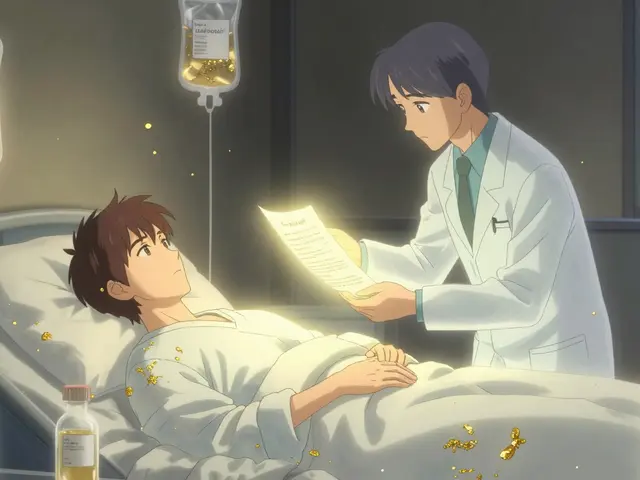
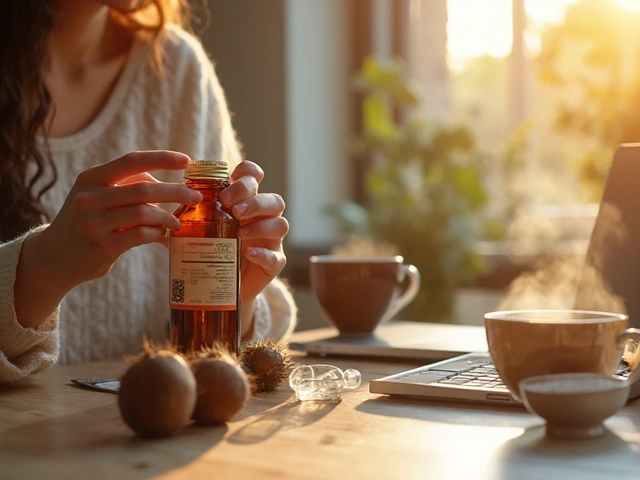
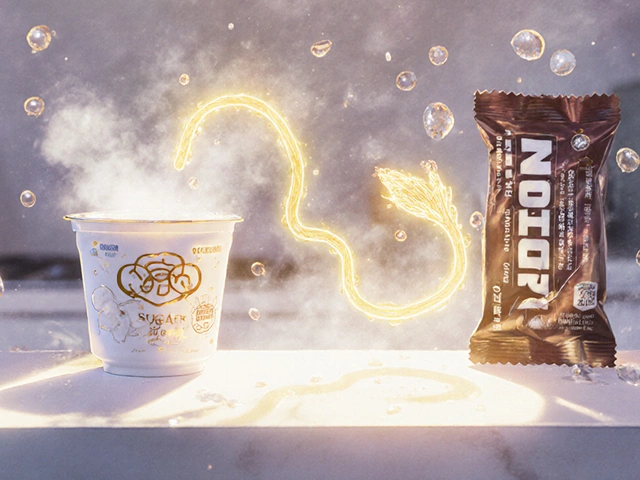
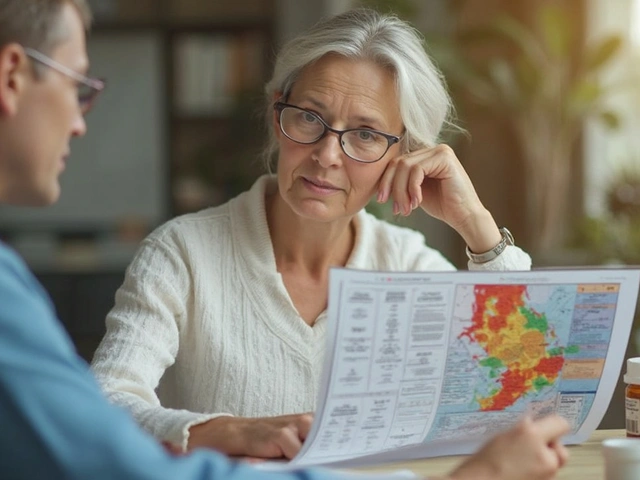
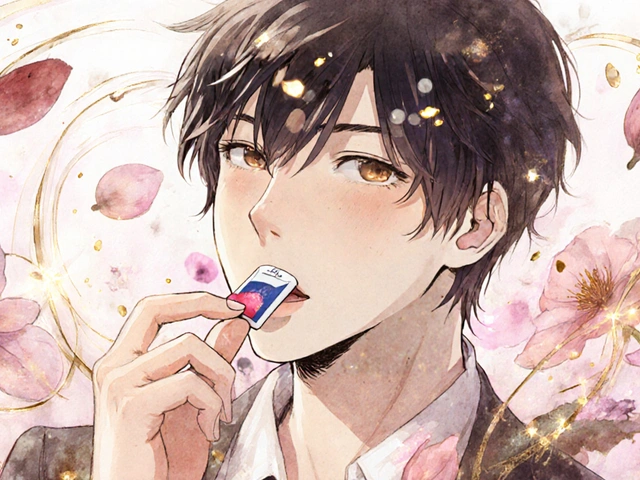
Daniel Rod
November 28, 2025 AT 00:39Man, this hit different. I thought I was just unlucky with stones, but turns out I was just lazy with water. Started drinking a liter before noon like the article said - and my urine went from dark tea to lemonade in three days. No more 3 a.m. pain. Just peace. 🍋💧
gina rodriguez
November 28, 2025 AT 09:45Thank you for writing this. I’ve been scared to even look at spinach since my last stone. Now I know I can have it with yogurt - feels like a weight lifted. Small changes, big difference. 💛
Sue Barnes
November 30, 2025 AT 06:38Stop giving people false hope. This isn’t ‘diet magic.’ If you’re forming stones, you’ve got a metabolic disorder. No amount of lemon water fixes broken kidneys. You need a nephrologist - not a wellness influencer.
jobin joshua
November 30, 2025 AT 09:20Bro, I live in India, we drink chai all day. But I started drinking 2L water before tea now. And guess what? No stone in 8 months. 🙌 Also, swapped my salt for black salt - weird, but works. 😎
Sachin Agnihotri
December 1, 2025 AT 03:23Okay, I’m gonna be real - I used to think ‘drink more water’ was just a cliché. But after my third stone last year, I tracked my intake for 30 days. I was down to 1.2L. Now I’m at 2.8L daily. My urine’s pale yellow. I’m not cured - but I’m not losing anymore. Small wins, right? 🤷♂️
Diana Askew
December 1, 2025 AT 11:23They don’t want you to know this, but the FDA and Big Pharma are hiding the truth: kidney stones are caused by fluoride in the water. Lemon water doesn’t help - it’s a distraction. Drink distilled water. Avoid all municipal sources. I’ve been stone-free for 2 years since I installed my reverse osmosis filter. 🚫💧
King Property
December 2, 2025 AT 02:05You’re all missing the point. This article is basically DASH diet propaganda. The real solution? Low-carb. Ketosis reduces oxalate production. I’ve been keto for 18 months. No stones. No meds. No lemon water. Just meat, cheese, and butter. The ‘drink more water’ advice is for people who don’t understand biochemistry. You’re welcome.
Yash Hemrajani
December 2, 2025 AT 08:04Oh wow, someone actually wrote a useful kidney stone article? Who’d have thought? 😏 Seriously though - if you’re still drinking soda and eating salted nuts, no amount of lemon will save you. I’ve seen 50+ patients with the same story. You’re not special. Drink the water. Stop the salt. Done.
Pawittar Singh
December 3, 2025 AT 18:38Hey, if you’re reading this and you’re scared - I get it. I was there. But listen: you don’t need to be perfect. Miss a day? Drink an extra glass tomorrow. Forgot lemon? Just drink water. You’re not failing - you’re learning. This isn’t about being a saint. It’s about being consistent. One sip at a time. You got this. 💪❤️
Josh Evans
December 4, 2025 AT 03:07Just tried the yogurt + spinach thing. Tasted weird at first, but now I kinda like it. Also, my water bottle finally has a dent from me drinking it all day. Progress.
Allison Reed
December 5, 2025 AT 13:37This is the most practical, evidence-based guide to kidney stone prevention I’ve ever read. No fluff. No supplements. Just physiology and habits. I’ve shared it with my entire family. Thank you for the clarity.
Jacob Keil
December 6, 2025 AT 09:07Wait so calcium is good? But I thought it caused stones?? I’m so confused now. I’ve been avoiding dairy since 2020. Maybe I’ve been doing it wrong?? 🤯
Rosy Wilkens
December 6, 2025 AT 23:09Of course the medical establishment promotes ‘drink water.’ It’s cheap. It’s non-lucrative. They want you dependent on their $300 urine tests and $120 potassium citrate pills. The truth? Your stones are caused by electromagnetic pollution from 5G towers. Drink alkaline water. Sleep with a shungite stone under your bed. That’s real prevention.
Andrea Jones
December 8, 2025 AT 13:48So… you’re saying I can still eat chocolate? Just not alone? And I have to pair it with milk? Huh. That’s… actually kind of genius. I’m gonna try it with my afternoon snack. Thanks for making me feel less guilty.
Justina Maynard
December 9, 2025 AT 08:05Y’all are acting like this is some revolutionary discovery. I’ve been doing this since my first stone in ‘08. Water. Salt. Citrus. Protein control. It’s not rocket science. It’s just… basic. But most people are too lazy to change. And then they wonder why they’re back in the ER. 🤦♀️
Evelyn Salazar Garcia
December 10, 2025 AT 17:43Too much effort. I’ll just take the pills.